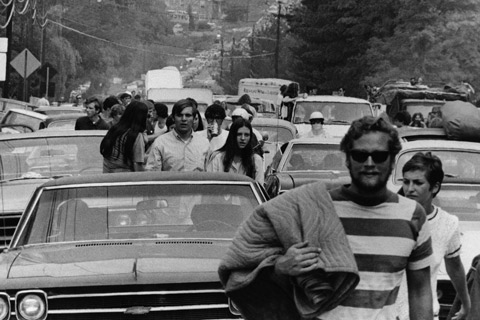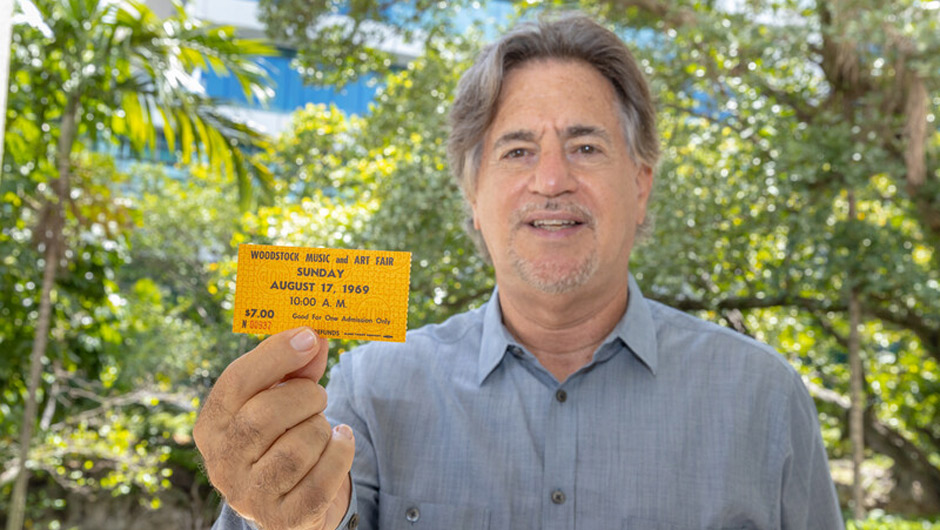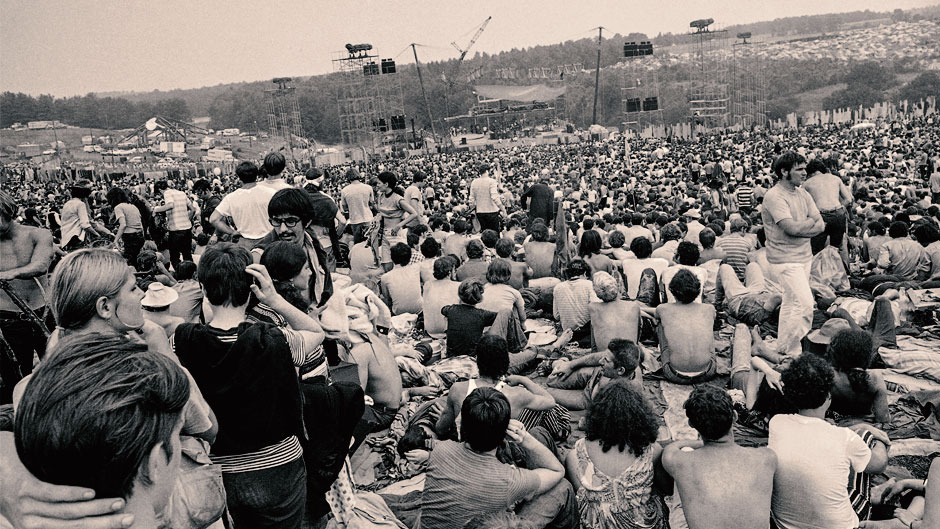It was the summer of 1969 when Marc Gellman decided to pack up a car with his friend and drive to upstate New York for a weekend music festival they heard about on the radio.
“When we set off for the Woodstock Music Festival we just expected to hear some good music, but that’s not what happened. Not in my wildest dreams did I ever think this concert would shape my life forever,” said Gellman, a research associate professor in the Department of Psychology in the University of Miami College of Arts and Sciences.
Without any expectations, Gellman and his friend drove to Bethel, New York, equipped with only sleeping bags, some loafs of bread and peanut butter and jelly. When they finally crossed the state line into New York from New Jersey, it was at that moment when they realized they were going to witness something big.

“Traffic immediately came to a crawl and all you saw were cars, vans and buses filled with people that looked just like me,” he said. “Everyone had long hair and everyone was blasting music out of their car. We were all headed to the same place.”
Once camped out, Gellman, who was an advocate against the war in Vietnam and an activist to lower the voting age, spent the whole first night speaking to others who were like-minded.
“There were many political movements going on at the time. The intent of Woodstock was to hear music, but it also helped birth several movements we still see today like the anti-war movement and the environmental movement,” he said.
On the second day of the concert, Gellman recounts waking up in his car and heading to the fairgrounds. He said he would never forget the moment the singer Carlos Santana got up on stage and the group began performing.
“I had never heard of Santana, nobody knew of the group. They had not yet released their first album. However, he began playing this Latin infused rock and roll that is probably familiar today, but back then nobody had even heard anything like it. The crowd loved it and everyone stood up and cheered. We wanted more and more,” he said.
The music never stopped. It went on from Saturday afternoon until early Sunday morning.
“I remember it was 2 a.m. when Janice Joplin hit the stage with her striking blues vocals, and remarkable swagger. She got everyone up on their feet. Her performance was followed by Sly & the Family Stone. They kept the hundreds of thousands of people dancing and singing. There was so much energy, it was electric,” said Gellman.
Woodstock displayed to the world that people could live together in peace and harmony. It was at some point on Sunday when Gellman experienced the meaning of the message. It started to rain and he took shelter in his sleeping bag.
“I had fallen asleep in my sleeping bag when it began to rain. While sleeping, someone had moved me into the woods where I could stay dry. The festival was all about helping others. It was a help your neighbor kind of mentality. The next thing I know, when I woke up, someone handed me a hot plate of food. It was the first time I ever ate what was then called macrobiotic, now known as a vegan diet,” he said.
Gellman believes marijuana use at the festival influenced the outcome and success of the concert. Everyone was relaxed and enjoying the moment. He said attending the concert led him to study psychopharmacology and how various aspects of drugs affect behavior.

“At Woodstock I observed people using drugs and what it did to their behavior. I was always intrigued by the way certain drugs change people,” said Gellman. “In 1979 I began teaching a psychology course here at UM that centered on drugs and behavior. This past semester I taught the course for the last time after 40 years.”
Gellman also teaches about the history of the Woodstock festival and music of the '60’s as part of the Decade of the '60’s course offered occasionally though the Departments of History and English.
It is clear that 50 years later, Woodstock’s legacy still lives on.
“I feel amazingly lucky to have attended the festival. The music will forever carry on,” he said.

